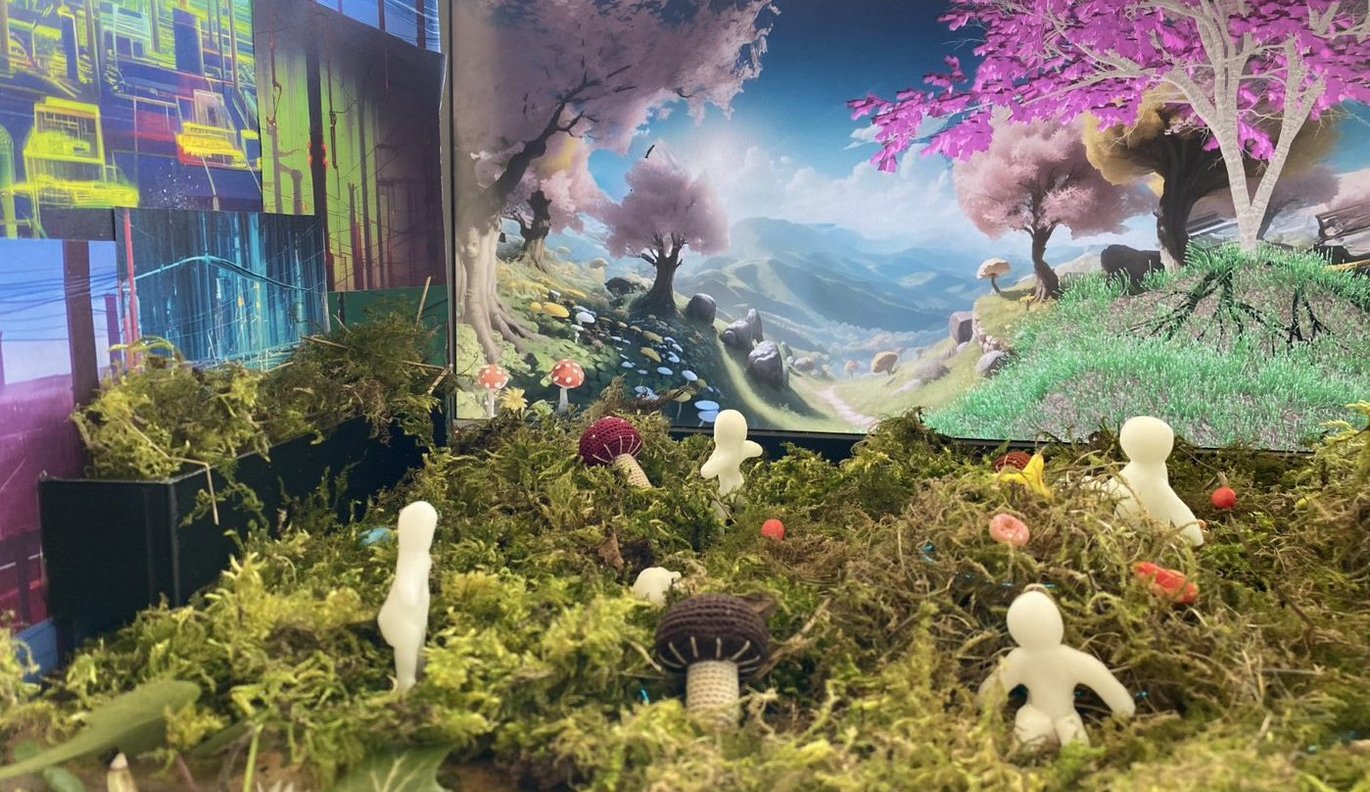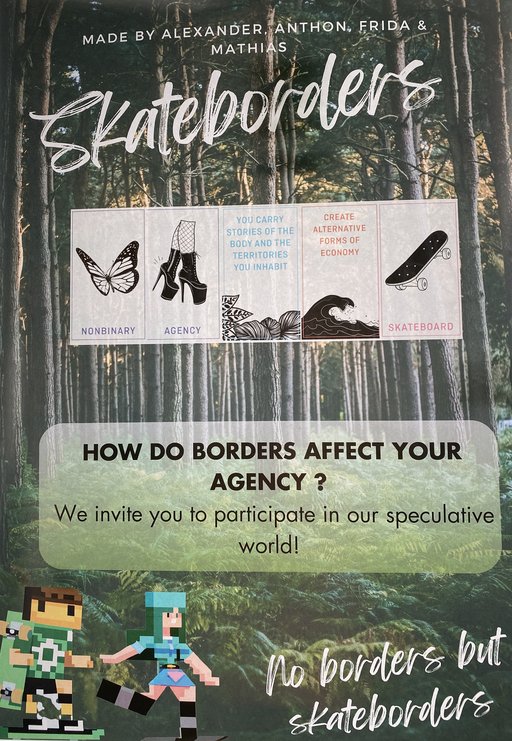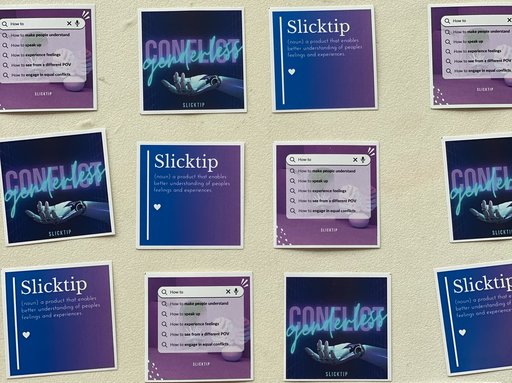Creating alternative data futures to address present challenges in data practices.
Students explore alternative data futures through speculative design and design justice methods.

Thursday, May 4th students of Critical Data Studies programme exhibited their speculative projects at Nygaard building.
The three projects were the result of a semester-long critical enquiry into digital and data-based technologies. Making use of speculative design and design justice methods and drawing on trans-feminist values to imagine technologies otherwise students developed three distinct projects which challenge our assumptions about data practices and their relation to our daily lives.
While such technologies are too often considered neutral, there is substantial evidence that most of the algorithms that command our digital interactions are biased.
The Oracle card-set is a tool designed by the Design Justice Network, an international community of people and organizations who are committed to rethinking design processes so that they center people who are too often marginalized by design. The DJN works according to a set of principles that were generated and collaboratively edited by the network members.
The cards provided the basis for each project. Read more about it below.
Designs were developed within the framework of design justice which is concerned with more inclusive, respectful and equitable design where users are designers and designers are users. Students used the Oracle, a hands-on card deck created to facilitate generating scenarios for equitable futures to address speculative questions: “What if our data-based technologies and practices were based on transfeminist values? How would they look like? Who would profit from them and how?”
Dive into the three projects below 🔽
__________
Skateborders
What if there was a technology to support crossing all borders?
Imagine a world with no borders. Borders exist in many ways in our society. Through an alternative future prototype visualized by students in Minecraft, an alternative scenario showed the world where it was possible to jump on a skateboard and cross any borders imaginable.
The project helps to question borders and their impact on our lives. As many Western citizens are not affected when crossing borders between European countries, many are excluded from such a possibility to travel and migrate. Inspired by the introductory chapter “Travelling while Trans” in the book Design Justice by Sasha Constanza-Choc, the project elaborates on borders as a technology and biases that it generates.
__________
Slicktip
What if there were technologies that could help us understand the experiences of others?
Slicktip is a product that provides the ability to understand feelings and experiences of others. This design helped to explore gendered assumptions that discriminate against women and others’ and that consider their concerns and complaints as not serious.
Students developed different scenarios to experience an alternative future with the Slicktip fully integrated.
__________
BECN: Bio-Electric Communication network
What if we could connect with nature and each other without harming the environment?
Through a diorama that also includes AI-generated images of symbiotic communication networks between humans and nature, students imagine alternatives to the current cloud computation technologies. Identifying pollution and lack of autonomy that such technologies generate, as we are always attached to data centers managed by big corporations with dubious sources of energy to run these centers, the students propose to get out of the cloud and into the ground, to create more inclusive data futures.
Focus on problems rather than solutions strengthens imagination and creativity.
Speculative design is a method that helps to understand issues behind technologies and their use. Rather than immediately trying to come up with solutions the focus is on identifying problems, which is an important competence the students gain throughout the course.
The aim of the course is to enable students to imagine and think about alternatives to existing data practices and technologies while taking into account contemporary concerns around ethics and the impact of data.
_________________________
Alternative Data Futures, part of Critical Data Studies program was led by Magdalena Tyżlik-Carver Contact: magdatc@cc.au.dk
If you would like to hear more about the course, exhibitions, or projects do not hesitate to reach out.
Contact the department: afdelingsleder.ddinf@cc.au.dk



